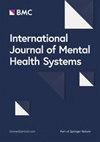Prescriptive factors for intensive home treatment in acute psychiatry: a secondary analysis of a randomised controlled trial
IF 3.8
2区 医学
Q2 PSYCHIATRY
引用次数: 0
Abstract
Intensive home treatment (IHT) aims to prevent psychiatric hospitalisation. Although this intervention is well tested, it is still unknown for whom this intervention works best. Therefore, this study aims to explore prescriptive factors that moderate the effect of IHT compared to care as usual (CAU) on symptom severity. Using data from a randomised controlled trial, 198 participants that experience an exacerbation of acute psychiatric symptoms were included in this secondary analysis. In order to maximise clinical relevance, generally available environmental and clinical baseline factors were included as tentative moderators: age, gender, employment status, domestic situation, psychiatric disorders, psychological symptoms, psychosocial functioning, alcohol and other substance use. The outcome variable symptom severity was measured using the Brief Psychiatric Rating Scale (BPRS) and collected at 26 and 52 weeks post-randomisation. Multiple regression analysis was used to examine which participants’ characteristics moderate the effect of IHT on the total BPRS score. Our results suggest that being employed (B = 0.28, SE = 0.13, 95% CI = 0.03–0.53, p = 0.03) at baseline seems to have a moderation effect, which result in lower symptom severity scores at 26 weeks follow-up for patients who received IHT. This effect was not found at 52 weeks. On the basis of the number of factors tested, there is no evidence for robust outcome moderators of the effect of IHT versus CAU. Our conclusion is therefore that IHT can be offered to a diverse target population with comparable clinical results. This trial is registered (date of registration: 2016-11-23) at the international clinical trials registry platform (NTR6151).急性精神病学强化家庭治疗的规定因素:随机对照试验的二次分析
强化家庭治疗(IHT)旨在防止精神病患者入院治疗。虽然这种干预措施已经过充分测试,但对哪些人最有效仍是未知数。因此,本研究旨在探讨与常规护理(CAU)相比,家庭强化治疗对症状严重程度的影响的调节因素。利用随机对照试验的数据,198 名急性精神症状加重的参与者被纳入了这项二次分析。为了最大限度地提高临床相关性,我们将一般可用的环境和临床基线因素作为暂定调节因素:年龄、性别、就业状况、家庭状况、精神障碍、心理症状、心理社会功能、酒精和其他药物的使用。结果变量症状严重程度采用简易精神病评定量表(BPRS)进行测量,并在随机后 26 周和 52 周进行收集。我们采用了多元回归分析法来研究哪些参与者的特征会减缓 IHT 对 BPRS 总分的影响。结果表明,基线时的就业情况(B = 0.28,SE = 0.13,95% CI = 0.03-0.53,p = 0.03)似乎具有调节作用,这使得接受 IHT 治疗的患者在 26 周随访时症状严重程度得分较低。但在 52 周的随访中并未发现这种效应。从测试的因素数量来看,没有证据表明 IHT 对 CAU 的效果有明显的调节作用。因此,我们的结论是,可以向不同的目标人群提供 IHT,且临床效果相当。本试验已在国际临床试验注册平台(NTR6151)注册(注册日期:2016-11-23)。
本文章由计算机程序翻译,如有差异,请以英文原文为准。
求助全文
约1分钟内获得全文
求助全文
来源期刊

International Journal of Mental Health Systems
PSYCHIATRY-
CiteScore
6.90
自引率
2.80%
发文量
52
审稿时长
13 weeks
 求助内容:
求助内容: 应助结果提醒方式:
应助结果提醒方式:


